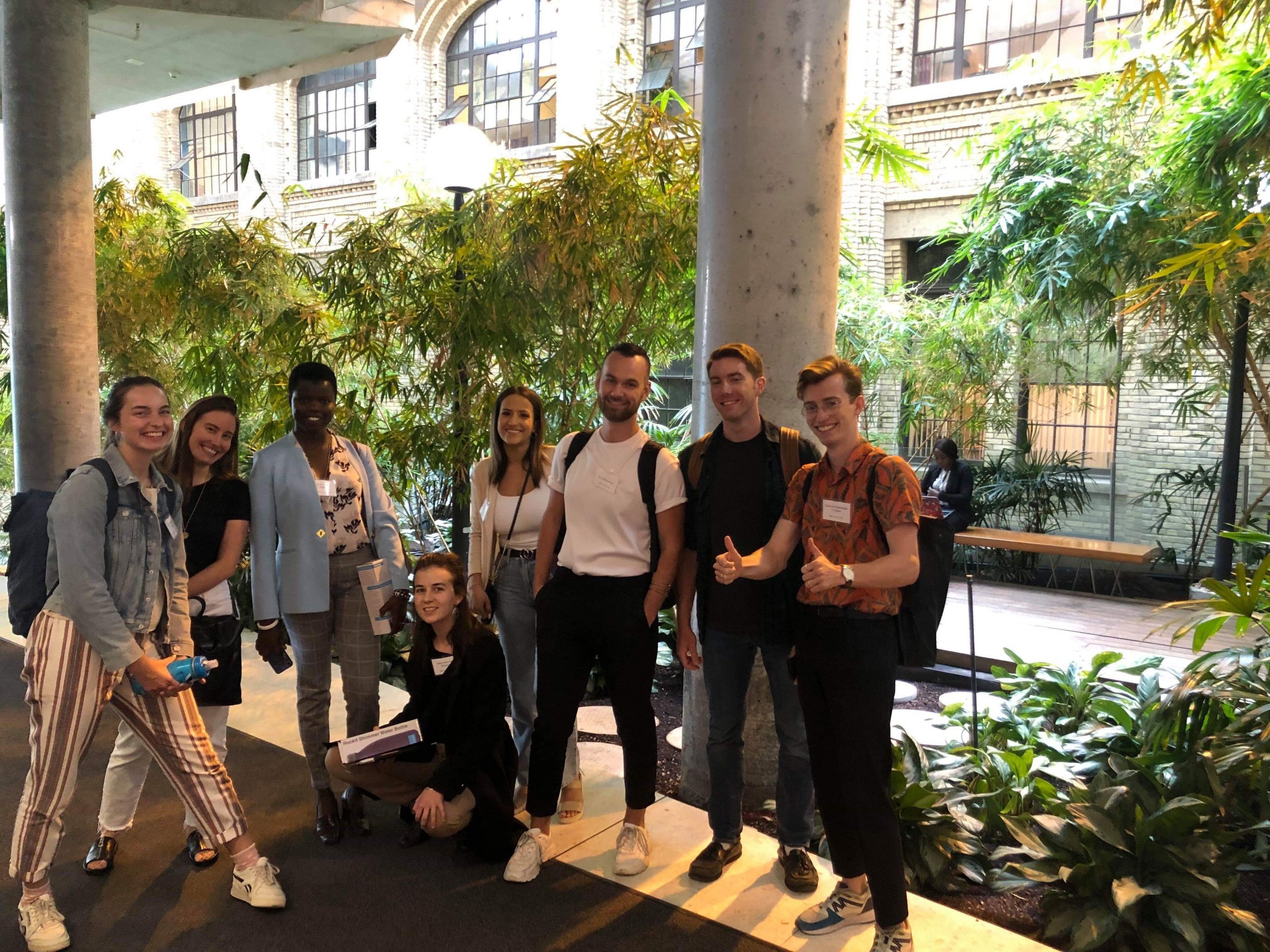Celebrating our graduates: Jessica Rapson
November 16, 2021
by: Munk School staff
What does math have to do with public policy? Most may not see the connection, but through volunteer work, Master of Public Policy (MPP) grad Jessica Rapson saw the intersections early on. “I’m volunteering for Statistics Without Borders. They work with non-profit organizations to solve more advanced analytical problems,” says Rapson. “For instance, one charity I am working with through them is focused on preventing human trafficking. We are using geographical data to predict, at a very granular detail, where sex trafficking is likely to occur. The charity can then use this data to advocate for interventions in those areas before the trafficking happens.” Seeing the ways in which math and data can influence policymaking is what led Rapson, who is set to graduate at U of T’s online convocation ceremony on November 18, to the Munk School. “Through volunteering, I saw that there was an unmet need in the public sector for data analytics. I wanted to be able to fill those gaps,” says Rapson.

“It’s important to learn the details of the policymaking process because everyone has broad, ambitious ideas as to how they can have an impact and make change. But unless you understand the actual structure of the world or the policymaking process, you’re not going to be able to be effective.”
Through the MPP program’s summer internships, Rapson got the opportunity to conduct real-world data analytics in public policy, first at Infrastructure Canada, and then at the Canada Border Service Agency (CBSA), where she looked at border policy data as part of the data science and analytics team. Her internship at Infrastructure Canada turned into a part-time job that she kept while she studied. Now that her MPP journey is complete, Rapson works at the federal agency full-time.
She says her role at Infrastructure Canada is about pushing for policy change based on data-driven evidence. “Most like to focus on people-based issues, and problems that connect to their own personal life. But there are a lot of issues that are more related to ‘things’, and sometimes those issues get less attention,” says Rapson. “Issues like the mechanics of public transit or wastewater systems aren’t as sexy as the big social problems people talk about. But those kinds of things have a major impact on the environment and the economy. That’s why I like working in infrastructure. It’s one thing that people don’t think about as much but is really important.”
Rapson hopes for a future in policymaking that is more data-driven and evidence-based. She sees the trends in her work and wagers that data analysis will become more of a requirement for policy jobs. That said, she hopes to see future MPP students bring their interest for data and numbers to the Master of Public Policy program.

“Try to be exposed to data analytics at a level you’re comfortable with, especially if you hope to work in policy. Data-driven evidence is a prerequisite in a lot of policy reform proposals. You’ll need to be able to identify long-term trends and the causes and effects of different issues,” Rapson advises. “Expanding your toolkit in technology, math, and statistics is super important, as I’m confident the future of policymaking will rely a lot more on data. Plus, it’s also a lot of fun!”
The University of Toronto’s Fall 2021 Virtual Convocation Ceremony airs on November 18 at 12 p.m. ET. Visit utoronto.ca/convocation for more information on how to tune in and celebrate!


